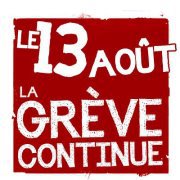Campus Fightbacks in the Age of Austerity: Learning from Quebec Students
By Xavier Lafrance and Alan Sears
The 2012 Quebec student strikes delivered one of the few victories we have seen in anti-austerity struggles in the Canadian state. The mobilization, which at its high point saw over 300 000 students on limited or unlimited strike, and demonstrations of hundreds of thousands, was a crucial highpoint that has a great deal to teach radicals. The attempted clampdown by the Charest government through Bill 78 that attempted to outlaw the movement, unleashed a new and innovative round of resistance including the casseroles night marches.


